Getting your work published – a few tips
By Cherie Rohn
New author and freelance writer
firstwriter.com – Monday December 19, 2005
In 1996 at a casino dealer's school in Albuquerque, New Mexico, my blackjack teacher, William Hanner, found himself sitting on a dynamite story. With only a third-grade education under his belt, he needed someone to write his true-life Damon Runyonesque tale. William's story hit me like a punch in the solar plexus. The scrawled words he'd set down in his dog-eared notebook so captivated me that I resolved to write his book no matter what it took.
I'd never written anything, but – fired with unquenchable desire and possessing the optimism born of ignorance – I started to write. It was God-awful writing at first. Then I learned a writing technique – similar to creating an Oriental lacquer bowl – of carefully adding layer upon layer of details to flesh out the story's bare bones framework. Diligent research and interviews with William's closest friends and family rounded out the picture. My biggest task lay in preserving William's "voice", a problem faced by many ghost-writers. After about 20 drafts, it was time to find a literary agent.
Here are some things I learned through nine years of writing and researching. While all are important, none is original:
1. Write a good book! Sounds self-evident, but it's not easy. Great writing is its own best advertising and attracts agents and publishers like a magnet attracts metal filings. Bill Roorbach, in his book Writing Life Stories, says: "Editors are extensively trained in the detection of crap". Roorbach also quotes astrophysicist Ernest Rutherford: "If you can't explain your theory to a bartender, it's probably no good".
I try to write as if I were telling a story to just one person, like I'm talking to you. If something sounds false, the reader will sense it in a heartbeat. Whereas authentic, from-the-gut writing is hard to resist.
2. Write a killer query and book proposal or outline. Creating these seemed more formidable than writing the book! But they're the required foot-in-the-door with agents. It's amazing how your story comes together when forced to describe it in brief but powerful terms. When designing your query letter, imagine you're in an elevator with a producer or publisher. You're under the gun to sell your idea before the doors open. (Not my idea, but a good one.) An editor told me: "Remember that your opening line – be it a query, a proposal, or the book – must 'hook' the reader's attention enough to drive them to read more".
My proposal, a sales letter of sorts, attracted the attention of the Farris Literary Agency, which I located through firstwriter.com's database of literary agents. They weren't the folks we signed with ultimately, but were supportive and professional, nonetheless. (For valuable advice on proposals see "Bulletproof book proposals", Jill Nagle, fwn 26.)
3. Cut, cut, cut. Tight writing is powerful writing. Learn to chop your manuscript with gusto. You don't have to "bleed" in the process. I made it a game to see how much text I could delete without losing important elements. I stated everything as simply as possible. When I couldn't find anything else to cut, I figured I was through. Our publisher confirmed my feelings saying the writing was "tight and needs little editing".
4. Trust your instincts. Along the way, William kept insisting the manuscript was "good enough", though my gut feeling said otherwise. So, several years into writing, I sent out queries to about ten literary agents I'd located through the Writer's Guide. One agent graciously penned a few lines on their standard rejection letter: "Great idea, but writing not up to industry standard". You've heard it before – don't stop until you're satisfied that you can't make it any better. I felt that if I gave it my best shot, I'd find an agent. And that's how it happened, which led to a contract with Barricade Books to publish our book Thief! (working title).
I also learned to be careful about who I allowed to read my writing. Even well-meaning friends and family can inadvertently undermine your confidence. I decided to follow Mario Puzo's advice: "Don’t show your stuff to anybody. You can get inhibited" (Mario Puzo, Mario Puzo's Godfatherly Rules for Writing a Bestselling Novel).
5. Find thee a literary agent. Like they say, unless you have an "in" with a publisher, you need an agent. My most valuable resource proved to be firstwriter.com. The Website allows you to fine-tune your selection process and submit queries online, saving precious time. Before sending out queries, I crosschecked literary agents I found at firstwriter.com with their descriptions in the Writer's Guide, another great resource.
While we actually ended up with a literary agent through a mutual friend, my query letter attracted the solid interest of three agencies listed at firstwriter.com. (Read "Seven essential points on literary agents", Jill Nagle, fwn 21.)
6. Fame and Fortune. By the way, a famous writer (whose name escapes me) once said: "If you're writing for the money, you will grow bitter before you grow rich". Late night television attracts millions of viewers with authors who "hit it big". What most people don't realise is that less than 1 per cent of all authors get rich writing, like J.K. Rowling of Harry Potter fame. And it took her years of struggling before she was published.
The above points are by no means all-inclusive. However, following them helped me, a non-writer, morph into a soon-to-be-published author. If a novice with a lousy ball-and-chain full-time job, writing somebody else's story can get published, so can you!
About the Author
Thief! by William Hanner and Cherie Rohn, in press with Barricade Books www.barricadebooks.com, is due to hit bookstores in 2006. Currently, the authors seek a publisher for another manuscript, Dog Justice, a mystery story for young readers.
"Nothing is dull," says Cherie Rohn, who has racked up an interesting list of experiences so far as a nightclub singer, scuba instructor, TV personality, and poker room floor supervisor – to name but a few.
In the past year, Cherie combined 15 years of design experience with 9 years freelance writing to forge a new business – Ideal Graphic Solutions – the perfect marriage between words and graphics to convey your message. Clients range from first-time business owners who need the perfect logo to individuals requiring a professional freelance writer – and everything in between.
"Everyone wants value for their money. I figure, if I surpass the expectations of my clients, they'll believe it was money well spent."
Cherie lives in Ft. Myers, Florida, where she writes and dives coral reefs.
Her Website is currently under construction. Contact Cherie directly at cherierohn@msn.com




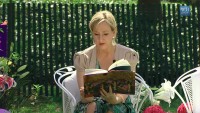 Tips From Publishers: How Authors Can Improve Their Chances Of Getting Published
Tips From Publishers: How Authors Can Improve Their Chances Of Getting Published How to write a book: 11 tips on creating a bestseller from published authors
How to write a book: 11 tips on creating a bestseller from published authors 10 tips on how to get your first book published
10 tips on how to get your first book published Promotional tips
Promotional tips How I got my book published - An interview with author, Stephen Nuttall
How I got my book published - An interview with author, Stephen Nuttall How I got my book published - An interview with author, Marion Grace Woolley
How I got my book published - An interview with author, Marion Grace Woolley How I got published - An interview with author, Kent Richardson
How I got published - An interview with author, Kent Richardson For beginners: ten ways to prepare to get published
For beginners: ten ways to prepare to get published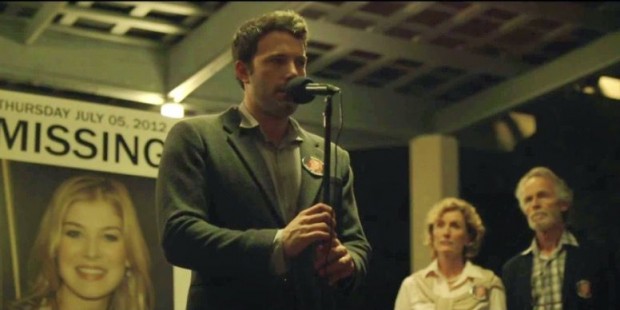 9 tips for writing your own murder mystery, from a published author
9 tips for writing your own murder mystery, from a published author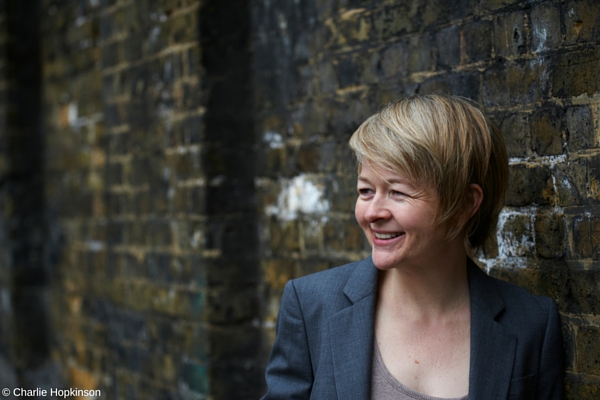 Sarah Waters, Ross Raisin, Adam Foulds, Andrew Cowan, Helen Simpson share writing tips, favourite books by young writers
Sarah Waters, Ross Raisin, Adam Foulds, Andrew Cowan, Helen Simpson share writing tips, favourite books by young writers Tips on writing fiction
Tips on writing fiction Ever wondered how a book gets published?
Ever wondered how a book gets published? How I got my book published - An interview with author, James J. Garber
How I got my book published - An interview with author, James J. Garber From writer to published author in 7 simple steps
From writer to published author in 7 simple steps Best Practices for Selling Your Book to Agents and Editors (or How to Avoid Being Delusional About Getting Published)
Best Practices for Selling Your Book to Agents and Editors (or How to Avoid Being Delusional About Getting Published) New Literary Agent Listing: Gabrielle Demblon
New Literary Agent Listing: Gabrielle Demblon Reading Force is delighted to welcome submissions from adults, children and young people to its 2025 Memoir Writing Competition
Reading Force is delighted to welcome submissions from adults, children and young people to its 2025 Memoir Writing Competition New Publisher Listing: Cicada
New Publisher Listing: Cicada Calling all aspiring authors! Here's your chance to win a one-to-one session with a literary agent - plus £1,500
Calling all aspiring authors! Here's your chance to win a one-to-one session with a literary agent - plus £1,500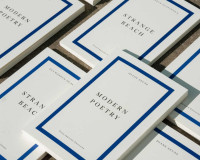 New prize for translated poetry aims to tap into boom for international-language writing
New prize for translated poetry aims to tap into boom for international-language writing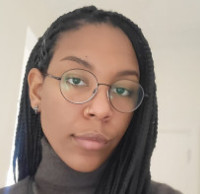 New Literary Agent Listing: Kaylyn Aldridge
New Literary Agent Listing: Kaylyn Aldridge TikTok parent ByteDance is shutting down its short-lived book publisher
TikTok parent ByteDance is shutting down its short-lived book publisher New Magazine Listing: And Other Poems
New Magazine Listing: And Other Poems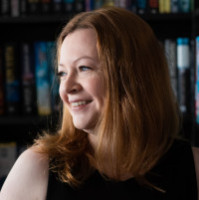 New Literary Agent Listing: Helen Lane
New Literary Agent Listing: Helen Lane UK audiobook revenue up by almost a third last year
UK audiobook revenue up by almost a third last year New Publisher Listing: Radio Society of Great Britain
New Publisher Listing: Radio Society of Great Britain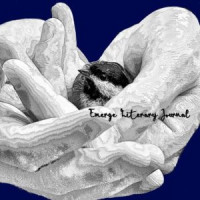 New Magazine Listing: Emerge Literary Journal
New Magazine Listing: Emerge Literary Journal New Literary Agency Listing: Ghosh Literary
New Literary Agency Listing: Ghosh Literary New Publisher Listing: Hardie Grant
New Publisher Listing: Hardie Grant
